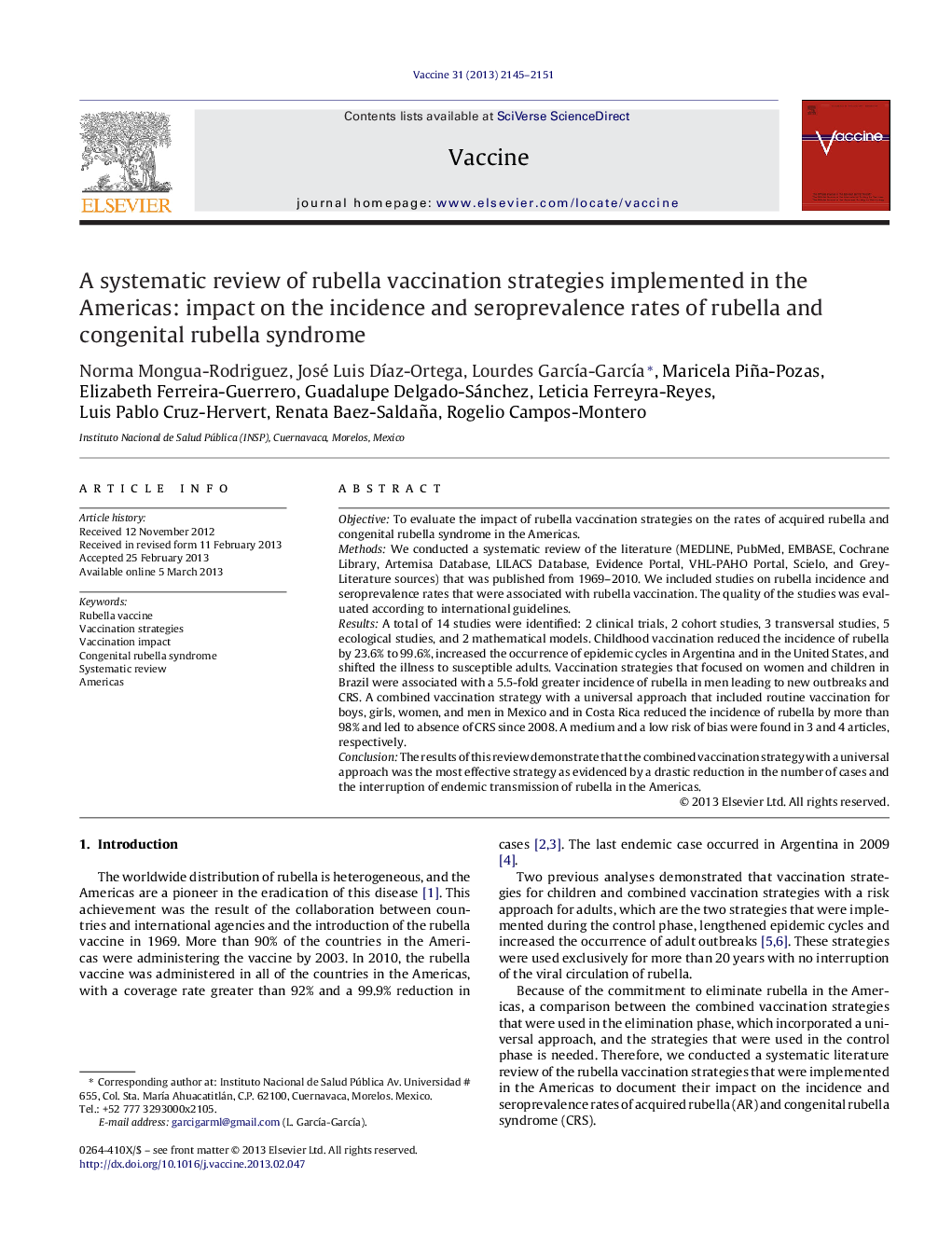| کد مقاله | کد نشریه | سال انتشار | مقاله انگلیسی | نسخه تمام متن |
|---|---|---|---|---|
| 2402693 | 1102837 | 2013 | 7 صفحه PDF | دانلود رایگان |

ObjectiveTo evaluate the impact of rubella vaccination strategies on the rates of acquired rubella and congenital rubella syndrome in the Americas.MethodsWe conducted a systematic review of the literature (MEDLINE, PubMed, EMBASE, Cochrane Library, Artemisa Database, LILACS Database, Evidence Portal, VHL-PAHO Portal, Scielo, and Grey-Literature sources) that was published from 1969–2010. We included studies on rubella incidence and seroprevalence rates that were associated with rubella vaccination. The quality of the studies was evaluated according to international guidelines.ResultsA total of 14 studies were identified: 2 clinical trials, 2 cohort studies, 3 transversal studies, 5 ecological studies, and 2 mathematical models. Childhood vaccination reduced the incidence of rubella by 23.6% to 99.6%, increased the occurrence of epidemic cycles in Argentina and in the United States, and shifted the illness to susceptible adults. Vaccination strategies that focused on women and children in Brazil were associated with a 5.5-fold greater incidence of rubella in men leading to new outbreaks and CRS. A combined vaccination strategy with a universal approach that included routine vaccination for boys, girls, women, and men in Mexico and in Costa Rica reduced the incidence of rubella by more than 98% and led to absence of CRS since 2008. A medium and a low risk of bias were found in 3 and 4 articles, respectively.ConclusionThe results of this review demonstrate that the combined vaccination strategy with a universal approach was the most effective strategy as evidenced by a drastic reduction in the number of cases and the interruption of endemic transmission of rubella in the Americas.
► A combined universal vaccination strategy was the most effective measure.
► This strategy would help achieve the goal of global rubella eradication in the near future.
► Other strategies shifted the disease to susceptible groups continuing transmission.
Journal: Vaccine - Volume 31, Issue 17, 19 April 2013, Pages 2145–2151